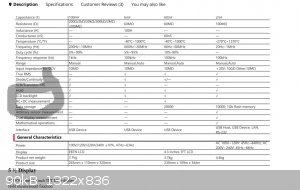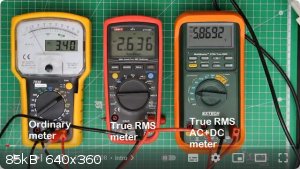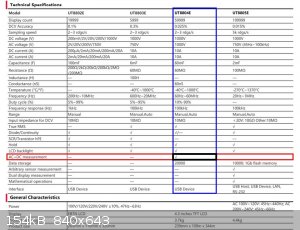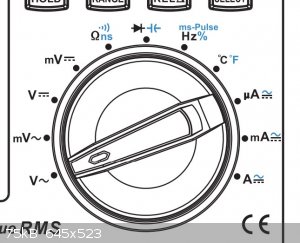| Pages:
1
..
101
102
103
104 |
mr_bovinejony
Hazard to Others
  
Posts: 130
Registered: 20-4-2018
Member Is Offline
Mood: ASS
|
|
Nope but I do love that book lol. Theres another shortter one called the recent advances in phosgene chemistry, these are the only two books I have on
phosgene
|
|
|
mr_bovinejony
Hazard to Others
  
Posts: 130
Registered: 20-4-2018
Member Is Offline
Mood: ASS
|
|
Nope but I do love that book lol. Theres another shortter one called the recent advances in phosgene chemistry, these are the only two books I have on
phosgene
|
|
|
bnull
Hazard to Others
  
Posts: 478
Registered: 15-1-2024
Location: South of the border, wherever the border is.
Member Is Offline
Mood: "Ah, what the hell; it's Christmas!" - Carmine Lorenzo
|
|
What about "A mild and efficient method for the preparation of acyl azides from carboxylic acids using triphosgene" (Tetrahedron Letters 43 (2002)
1345–1346)? Edit: No, it isn't.
Do you remember what was the reaction?
[Edited on 19-3-2024 by bnull]
Quod scripsi, scripsi.
B. N. Ull
P.S.: Did you know that we have a Library?
|
|
|
yobbo II
National Hazard
   
Posts: 765
Registered: 28-3-2016
Member Is Offline
Mood: No Mood
|
|
Could someone tell me what is meant by the feature on these true RMS meters?
AC + DC Measurement
The meters are at this link>
https://www.aliexpress.com/item/1005003126913969.html?src=go...
It is circled on the picture
TIA,
Yob

[Edited on 27-3-2024 by yobbo II]
|
|
|
B(a)P
International Hazard
    
Posts: 1139
Registered: 29-9-2019
Member Is Offline
Mood: Festive
|
|
eevblog is a great resource for electronics questions. Check out this thread.
|
|
|
bnull
Hazard to Others
  
Posts: 478
Registered: 15-1-2024
Location: South of the border, wherever the border is.
Member Is Offline
Mood: "Ah, what the hell; it's Christmas!" - Carmine Lorenzo
|
|
When the voltage has a component AC and a component DC (DC offset), ordinary meters measure either the AC component or the DC component but not both
at the same time. The AC+DC meter measures both and outputs this:
$$V_{RMS_{(AC+DC)}}=\sqrt{V_{DC}^2+V_{RMS_{AC}}^2}.$$
It's for those times when you want to know the power dissipation in a resistor, for example.
Edit: Victim of ninja attack because of a typo in LaTeX. You won't get me next time, B(a)P, mark my words. 
[Edited on 27-3-2024 by bnull]
Quod scripsi, scripsi.
B. N. Ull
P.S.: Did you know that we have a Library?
|
|
|
yobbo II
National Hazard
   
Posts: 765
Registered: 28-3-2016
Member Is Offline
Mood: No Mood
|
|
Thanks you folks.
Yob
|
|
|
wg48temp9
National Hazard
   
Posts: 786
Registered: 30-12-2018
Location: not so United Kingdom
Member Is Offline
|
|
Quote: Originally posted by bnull  |
When the voltage has a component AC and a component DC (DC offset), ordinary meters measure either the AC component or the DC component but not both
at the same time. The AC+DC meter measures both and outputs this:
$$V_{RMS_{(AC+DC)}}=\sqrt{V_{DC}^2+V_{RMS_{AC}}^2}.$$
|
If you mean it performs that sum then that is incorrect. A true rms meter simple calculates the rms of the signal be it AC, DC or a combination of
both.
Notice the first multimeter (UT8802) is not a true rms meter and has modes for DC and modes for AC. In AC mode it measures the mean rectified signal
then increases it by 0.11 assuming its a sine wave. The ratio of the rms to the mean of rectified sine wave is 1.11. If you measured the rms of a +
and - square wave it would give reading 0.11 too large.
The true rms multimeters (UT8803, I don't know about UT8804) do not have different ranges for AC and DC, its not needed because they calculate the
true rms.
Modern true reading multimeters sample the signal and calculate the rms from the samples. The expensive UT8805 even provides different functions it
can perform on the samples.
[Edited on 4/5/2024 by wg48temp9]
I am wg48 but not on my usual pc hence the temp handle.
Thank goodness for Fleming and the fungi.
Old codger' lives matters, wear a mask and help save them.
Be aware of demagoguery, keep your frontal lobes fully engaged.
I don't know who invented mRNA vaccines but they should get a fancy medal and I hope they made a shed load of money from it.
|
|
|
bnull
Hazard to Others
  
Posts: 478
Registered: 15-1-2024
Location: South of the border, wherever the border is.
Member Is Offline
Mood: "Ah, what the hell; it's Christmas!" - Carmine Lorenzo
|
|
Quote: Originally posted by wg48temp9  | | If you mean it performs that sum then that is incorrect. A true rms meter simple calculates the rms of the signal be it AC, DC or a combination of
both. |
"AC+DC measurement: Measure signals with AC and DC components (including various waveforms)
Ordinary multimeters can only measure pure AC/DC signals. If the measured AC signal is mixed with the DC signal, the AC signal reading is meaningless.
For Uni-Trend’s multimeters with AC+DC function, the AC and DC components are measured together." (https://meters.uni-trend.com/faqs/acdc-measurement/)
"AC and DC are components of a complex signal.
AC Voltage means RMS Voltage for AC component (effective Voltage of alternating current).
DC Voltage means Voltage for DC component (constant Voltage offset).
Both components produce power dissipation on the applied load.
So, you're needs to sum them together in order to get effective Voltage for a total dissipated power.
AC+DC Voltage = sqrt([AC RMS Voltage]^2 + [DC Voltage]^2)" (https://www.eevblog.com/forum/beginners/can-someone-explain-...)
"If you are expecting to include the DC component, but the meter is AC coupled, the results can be dramatically wrong. As a side note, if you need to
measure a small AC signal riding on a large DC offset but your meter doesn’t provide AC + DC directly, you can measure the AC component using AC
coupling and measure the DC component separately. Then add the two using rms addition:
AC + DC =sqrt((ACrms)2+DC2)" (Make Better AC RMS Measurements with your Digital Multimeter. Application note, Keysight Technologies, 2018. There's a bloody typo in the
formula that they never bothered to fix.)
True-RMS Measurement Pt.1: AC vs. AC+DC. "Roger demonstrates the difference between so called "True-RMS" (only AC) and "True-RMS AC+DC"
multimeters and a simple AC-averaging multimeter." (https://www.youtube.com/watch?v=LZEie3nAo1E) 
That's the one in question:

[Edited on 5-4-2024 by bnull]
Quod scripsi, scripsi.
B. N. Ull
P.S.: Did you know that we have a Library?
|
|
|
wg48temp9
National Hazard
   
Posts: 786
Registered: 30-12-2018
Location: not so United Kingdom
Member Is Offline
|
|
I have now had time to view the details of UT8804.
Below is a snip of the selection switch for the UT8804:

I think the symbol next to all the current ranges is intended to indicate mixed AC and DC signals which are measured true rms ie calculating the rms
from a set of samples of the signal DC coupled. I think some people are calling this "AC + DC" mode.
On the voltage range there or two different symbols one usually indicates AC and the other DC. I would expect the AC range to be AC coupled and
measures the RMS of the AC component. Does the DC position indicate average or rms ?
The UT8803 only uses the mixed symbol that the current ranges of the UT8804 uses. Meaning it only measures true rms DC coupled
I suspect the tick in AC+DC column for the 04 refers to the two voltage ranges, AC range and DC range that the 03 does not have.
I am very interested in these meters as they both have a usb interface. I expect to purchase the 03. If I want to measure the AC component of a mixed
AC and DC voltage l I will add a series capacitor to one of the test leads.
[Edited on 4/7/2024 by wg48temp9]
I am wg48 but not on my usual pc hence the temp handle.
Thank goodness for Fleming and the fungi.
Old codger' lives matters, wear a mask and help save them.
Be aware of demagoguery, keep your frontal lobes fully engaged.
I don't know who invented mRNA vaccines but they should get a fancy medal and I hope they made a shed load of money from it.
|
|
|
bnull
Hazard to Others
  
Posts: 478
Registered: 15-1-2024
Location: South of the border, wherever the border is.
Member Is Offline
Mood: "Ah, what the hell; it's Christmas!" - Carmine Lorenzo
|
|
Quote: Originally posted by wg48temp9  | I think the symbol next to all the current ranges is intended to indicate mixed AC and DC signals which are measured true rms ie calculating the rms
from a set of samples of the signal DC coupled. I think some people are calling this "AC + DC" mode.
On the voltage range there or two different symbols one usually indicates AC and the other DC. I would expect the AC range to be AC coupled and
measures the RMS of the AC component. Does the DC position indicate average or rms ?
The UT8803 only uses the mixed symbol that the current ranges of the UT8804 uses. Meaning it only measures true rms DC coupled
I suspect the tick in AC+DC column for the 04 refers to the two voltage ranges, AC range and DC range that the 03 does not have.
I am very interested in these meters as they both have a usb interface. I expect to purchase the 03. If I want to measure the AC component of a mixed
AC and DC voltage l I will add a series capacitor to one of the test leads.
[Edited on 4/7/2024 by wg48temp9] |
Read the UT8804E manual (http://unitrend.oss-cn-hongkong.aliyuncs.com/upload/file/202...), starting on page 9.
Quod scripsi, scripsi.
B. N. Ull
P.S.: Did you know that we have a Library?
|
|
|
mr_bovinejony
Hazard to Others
  
Posts: 130
Registered: 20-4-2018
Member Is Offline
Mood: ASS
|
|
Will clemmensen reduce 3 bromo benzaldehyde to 3 bromo toluene or will it remove the bromine?
|
|
|
clearly_not_atara
International Hazard
    
Posts: 2800
Registered: 3-11-2013
Member Is Offline
Mood: Big
|
|
Not sure but I do know that this method will reduce the aldehyde without affecting the bromine:
https://pubs.acs.org/doi/pdf/10.1021/ja01860a035
|
|
|
mr_bovinejony
Hazard to Others
  
Posts: 130
Registered: 20-4-2018
Member Is Offline
Mood: ASS
|
|
Very cool, now just gotta find some hydantion or hippuric acid
|
|
|
EF2000
Hazard to Others
  
Posts: 153
Registered: 10-5-2023
Location: The Steppes
Member Is Offline
Mood: Taste testing the Tonka fuel
|
|
Hydantoin is easily prepared from glycine and urea: https://www.sciencemadness.org/whisper/viewthread.php?tid=15...
Wroom wroom
"The practice of pouring yourself alcohol from a rocket fuel tank is to be strongly condemned encouraged"
-R-1 User's Guide
|
|
|
mr_bovinejony
Hazard to Others
  
Posts: 130
Registered: 20-4-2018
Member Is Offline
Mood: ASS
|
|
Awesome, though not a fan of the 50 hour reflux mentioned in the paper when they reduce o-chlorobenzylhydantoin. Guess this will be a last resort
option
|
|
|
Bedlasky
International Hazard
    
Posts: 1243
Registered: 15-4-2019
Location: Period 5, group 6
Member Is Offline
Mood: Volatile
|
|
Hi folks!
I have few short questions regarding stellar nucleosynthesis. Sorry if this don't belong here, but I don't want to start new thread because of few
stupid questions.
1. Stellar nucleosynthesis ends with 56Ni. I read that it could continue further, because alpha process is exothermic up to 100Sn. But because of high
temperature and pressure rate of photodisintegration is so high that it prevent further process. I get how pressure affects it (atoms are more densly
pact, higher chance of collision with photon), but how temperature affects it? Photons aren't affected by temperature.
2. https://en.m.wikipedia.org/wiki/Carbon-burning_process
I don't get why isn't reaction 4 favored. Why excited 24Mg release hellium, hydrogen or neutron rather than photon? Isn't braking atom more difficult
than releasing photon? Same thing for 32S in oxygen burning.
3. Why neon in neon burning doesn't fuse with another neon like carbon/oxygen in carbon/oxygen burning?
4. Is there a way how to calculate activation energy for nuclear fussion?
5. 4He is most commonly emited atomic nucleus. It makes sense because it's small and highly energiticaly favorable. But why isn't emission of 12C or
16O also common? These nuclei are also energetically favorable, 16O is doubly magic (like 4He).
|
|
|
jackchem2001
Harmless

Posts: 48
Registered: 2-6-2024
Member Is Offline
|
|
When using tight steel hose clamps, is there a risk of implosion under vacuum?

And what about steel keck clips

|
|
|
Sulaiman
International Hazard
    
Posts: 3723
Registered: 8-2-2015
Location: 3rd rock from the sun
Member Is Offline
|
|
Whatever is clamped by the hose clamp will shrink under vacuum so there will be less stress due to the clamp.
I can't imagine what problem could be caused by steel keck clips.
So I think that both are not a problem/risk.
...........................
A question of my own;
What is the purpose of the ground taper at the top of a Gay-Lussac style pycnometer?

CAUTION : Hobby Chemist, not Professional or even Amateur
|
|
|
Morgan
International Hazard
    
Posts: 1705
Registered: 28-12-2010
Member Is Offline
Mood: No Mood
|
|
Quote: Originally posted by Sulaiman  | Whatever is clamped by the hose clamp will shrink under vacuum so there will be less stress due to the clamp.
I can't imagine what problem could be caused by steel keck clips.
So I think that both are not a problem/risk.
...........................
A question of my own;
What is the purpose of the ground taper at the top of a Gay-Lussac style pycnometer?
|
Perhaps this from a Thomas Scientific brand
"Gay-Lussac With capillary glass stopper ground to flat-sided point for take-off of overflow 10 mL"
|
|
|
Sulaiman
International Hazard
    
Posts: 3723
Registered: 8-2-2015
Location: 3rd rock from the sun
Member Is Offline
|
|
I received a 10ml pycnometer this morning, (it's cute)
so now I can partially answer my own question:
the ground taper and top seem to be to indicate the presence of liquid
(which makes the frosted areas more transparent, less opaque rough whiteness)
rather than to directly assist in the removal of liquid.
CAUTION : Hobby Chemist, not Professional or even Amateur
|
|
|
bnull
Hazard to Others
  
Posts: 478
Registered: 15-1-2024
Location: South of the border, wherever the border is.
Member Is Offline
Mood: "Ah, what the hell; it's Christmas!" - Carmine Lorenzo
|
|
It is to minimize error. The amount of liquid that gets into the ground glass joint is predictable and the fitting is not loose. This way you can
measure the volume accurately. See, for example, All about pycnometers and accurate ABV and Moore, R. (1973). A Pycnometer of Improved Design. Journal of the Minnesota Academy of Science, Vol. 39 No.1, 22-23.
Quod scripsi, scripsi.
B. N. Ull
P.S.: Did you know that we have a Library?
|
|
|
jackchem2001
Harmless

Posts: 48
Registered: 2-6-2024
Member Is Offline
|
|
A base bath is said to clean glassware by etching a small layer off the glass. How does this affect ground glass joints? Is the seal compromised (with
joint grease) after base bath usage?
|
|
|
DraconicAcid
International Hazard
    
Posts: 4356
Registered: 1-2-2013
Location: The tiniest college campus ever....
Member Is Offline
Mood: Semi-victorious.
|
|
Quote: Originally posted by jackchem2001  | | A base bath is said to clean glassware by etching a small layer off the glass. How does this affect ground glass joints? Is the seal compromised (with
joint grease) after base bath usage? |
Never had a problem with it in years of grad studies.
Please remember: "Filtrate" is not a verb.
Write up your lab reports the way your instructor wants them, not the way your ex-instructor wants them.
|
|
|
Sulaiman
International Hazard
    
Posts: 3723
Registered: 8-2-2015
Location: 3rd rock from the sun
Member Is Offline
|
|
Suggestions for grinding/lapping ground glass joints.
I want to match the stopper and neck of my pycnometer.
The document pointed to above by bnull
and Cody in a video, recommend regrinding for a really good fit.
Cody used valve grinding paste.
Any recommendations?
CAUTION : Hobby Chemist, not Professional or even Amateur
|
|
|
| Pages:
1
..
101
102
103
104 |